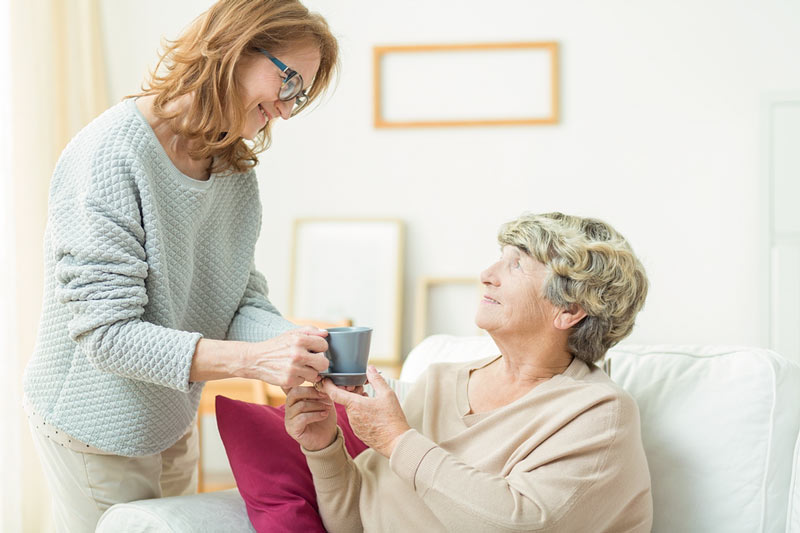
Respite is one of those lovely words which sometimes evokes images of leisurely vacations or well-funded sabbaticals. These days it has also come to mean something in the two-way dynamic between those who are cared for and their caregivers.
Some skilled nursing and personal care facilities offer respite care. This means they will house, feed, and provide appropriate activity and monitoring for someone who is disabled, chronically ill or terminally ill. The respite is an interlude away from home for the person receiving care, but it is vital relief for the caregiver.
What sometimes goes unnoticed is that round-the-clock responsibility for a spouse, an elderly parent, or an ailing child can exhaust — and sometimes even kill — the person who is giving the care.
It seems like an act of love: being there always for the person to whom one pledged his or her life in holy matrimony, by whom one was brought into the world, or the one to whom one gave birth. What doesn’t dawn on the caregiver early on is that somehow there has to be a share in responsibility. And there have to be sabbaths, large or small.
We know that the parents of infants don’t sleep well. It is also true that caregivers, even if they are aging adults, sleep lightly because they are so intent on hearing the stirrings of the loved one who might need help. The caregiver often is the chauffeur for medical appointments and the one who feeds, bathes, and lifts the person who is receiving care. So there is a huge physical drain.
The emotional drain also mounts. When it is obvious that the loved one will never really get better, there is grief underneath the warm words and daily caresses. There is the stress of 24/7 duty. And there is the fear that any moment might bring an unexpected crisis. The loved one might fall, have a seizure, spike in blood pressure, body temperature, or blood sugar, get an infection, or simply prove to be able to do less today than yesterday. If the person being cared for also suffers from dementia, the caregiver bears the sadness of encountering a beloved person who no longer knows who the caregiver is.
There is a spiritual toll too. Caregivers often feel guilty that they cannot do more and simply fix the problem. They chastise themselves for feelings of impatience, resentment, or anger — normal human emotions. They berate themselves for their own exhaustion. And they can be regretful over the fact that they often don’t get to church.
The truth is that all of us are called to love and to give, but we also have to know we cannot do it all and cannot fly solo. So it is not only reasonable but healthful to call on adult children, siblings, friends, volunteers, and agencies to help. It is appropriate to access whatever professional services are within one’s means.
Hours off duty, a weekend away, a retreat, a summer break: all of these are what our Church and our labor laws say adults need. These are especially important for caregivers. It is the only way they will be able to give their best and most loving care over the long haul.


